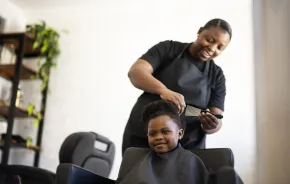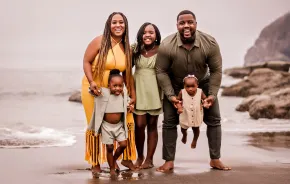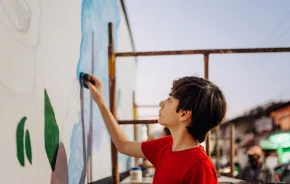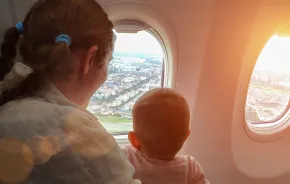 In this month of red, white and blue it is interesting to ponder the idea of citizenship. I’ve been asking friends and colleagues what citizenship means to them over the last week and notice that everyone gives a different answer. Is it manners, critical thinking, patriotism, caring for others or community service? How can we teach citizenship if we don’t know what it means?
In this month of red, white and blue it is interesting to ponder the idea of citizenship. I’ve been asking friends and colleagues what citizenship means to them over the last week and notice that everyone gives a different answer. Is it manners, critical thinking, patriotism, caring for others or community service? How can we teach citizenship if we don’t know what it means?
What does citizenship mean? We can think big and see the men and women who serve overseas, the men and women who take the courageous step to lead as elected representatives of our democracy. But to me, citizenship is also much more ordinary and much bigger than that. It is what we do and don’t do every day that generates a sense of “we” instead of “me.” Sometimes those actions happen in the context of our family or our neighborhood or our school. It isn’t one thing — but who we are as individuals as we reach out to add our tiny piece to make the world a better place.
We can teach our children about citizenship by modeling, noticing and practicing. Summer is a great time to practice. Keep efforts small-scale and close to home. Here are some citizenship ideas:
Think of others and make connections. Who in your neighborhood could use an extra smile this week?
- Bake cookies and put them in mailboxes. (Cooking together is great practice for math, too.)
- Tie a balloon to someone’s door with a note that says, “You’ve been ballooned! If it made you smile, pass it on.”
- Many older members of our community would like to join families for small outings, or have a young person draw a picture or read them a story.
- What ideas do your children have to add fun or lightness to your neighborhood? Sometimes it can be extra fun to do these activities secretly or as a surprise.
Share family work. Children learn responsibility by practicing — over and over again. It may seem easier to just set the table or load the dishwasher by yourself and avoid reminding/nagging, but if you do you are depriving your children of the important opportunity to contribute to the family and shoulder a regular responsibility. (Get more hints on sharing family responsibilities.)
Stay informed. Children are keen observers and there are many age-appropriate ways to learn to observe the world around them that become more nuanced as they grow older.
- Go on nature walks and get to know the “wildlife” in your neighborhood. Do you have crows, flickers, raccoons? Where do they live, what do they eat?
- Learn about the history of your neighborhood, community or family. Tell family stories, visit the Museum of History and Industry. Learn your family’s history going back generations. Where did you and your parents, grandparents and great-grandparents come from?
- As children get older, ask for their opinions about current events. Those might be events at school, in the community or in the world. Model curiosity and interest.
Think deeply.
- Practicing asking and learning how your child thinks instead of telling him/her what you think.
- Ask probing what and how questions with curiosity and without judgment.
Model and acknowledge courage. I like to think of courage as the movement we make in the direction of becoming our best selves. It is when we do the right thing — just because it is the right thing. And of course it rarely looks like courage to the person doing it.
- Practice noticing small acts of courage that you see.
- Model the courage to acknowledge mistakes and fix them.
I was touched this week by the courage of a 12-year-old. When my friend’s 12-year-old son Mike called her from the store and said, “Mom, I know I can walk home but please come pick me up — right away!” she got a little nervous but jumped in the car and picked him up. When he got in the car he said, “Please drive away now, I’ll explain later,” she followed her intuition and drove off.
Then out came the story. His sports buddies were in the store and one of them, the son of the coach, had just filled his backpack with food from the store and walked out without paying. Mike knew that they were all going to go off and share their little feast and he knew it was wrong. Even though he was aware that he might be teased later, he didn’t want to be a part of the shoplifting in any way. Courage. Maybe when he is 14 he’ll have even more courage and tell his friend not to do it. But at 12, calling for help and walking away took courage. And after they all calmed down, my friend let Mike know she thought walking away was a courageous act. He didn’t think so. It was just who he was. That, in fact, is what courage is.
Citizenship is something we do together — with our friends, our families and our communities. We’d love to hear what you are doing together to promote citizenship in your family and community.
 About the author
About the author
Jody McVittie, MD is the executive director and cofounder of Sound Discipline, a local nonprofit dedicated to teaching people to do the right thing, even when no one is looking. Sound Discipline works with schools and families in the Puget Sound Community.












